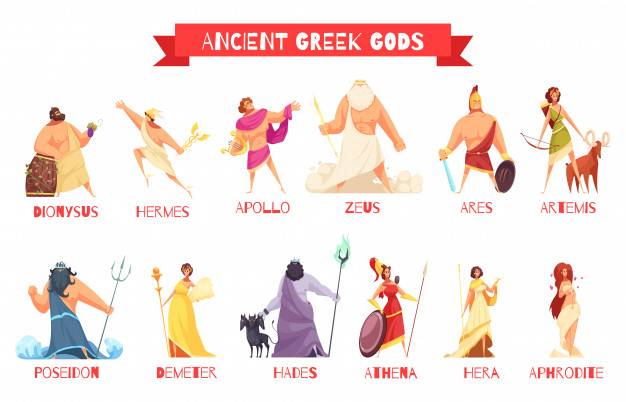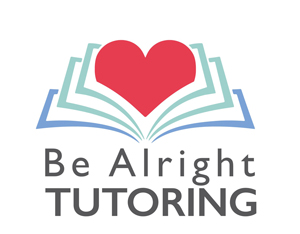
For 2020, Be Alright Tutoring is steering parents to learning supplements, books, and lesson plans worth adding to your academic toolbox.
Is your child struggling to remember all the Greek gods? Are you at a loss how to help?
Whether you homeschool or your child has Greek mythology on the curriculum this year, Be Alright a great way to teach Greek mythology or supplement a prepared school curriculum. Kids in the 7 to 12 age group will eat up “The Heroes in Training” and “Goddess Girls” series. By attaching some relatable personality to the ancient gods and goddesses, authors Joan Holub and Suzanne Williams have made mythology lessons interesting, fun, and memorable. Students in middle grades will appreciate their series based on Norse mythology: “Thunder Girls.” Although, I’ve seen kids at 7 and 15 enjoy the Heroes series just the same. Using the books in these series makes mythology lessons a breeze.
Remember, just because it seems too easy, doesn’t mean it’s wrong.
Let’s look at the first of the Zeus books, titled, “Heroes in Training: Zeus and the Thunderbolt of Doom.” With 17 books in this series, the authors have touched on many of the main, and some lesser known, themes related to Greek mythology. Each book is a quick read even for younger readers.
Using this book, we’ll consider how to use the series as a supplement or a complete lesson plan.
Supplement
Maybe your child already has a Greek mythology lesson plan in place, either at school or home. In this case, the book series helps cement each God and Goddess, plus their particular traits.
In “Thunderbolt of Doom,” Zeus is quickly introduced to the Titans, his lightning bolt, the other Olympians and King Cronos. There’s nothing your child will read which will contradict basic mythology lessons. In fact, the stories in the book support the ancient plots, but with easy-to-read modern language.
King Cronos keeps the Olympians in his stomach in a terrific gory, but not too scary, detail kids will love. Zeus is guided by an oracle, Pythia, to save them using his lightning bolt. Personifying the lightning bolt into a pet is genius. Kids will love the interaction between Zeus and “Bolt.”
These books gives each of the gods and goddesses a personality, which makes it easier for kids to identify and remember the important bits.
Lesson Plan
You could use these book series as a year-long Greek mythology lesson plan with a little fine tuning. The books take the heavy lifting out of the teaching. For the first book, for example, “Thunderbolt of Doom,” the basics of Greek mythology origins are planted. Kids learn about Zeus, Poseidon, Hades, Cronus, and Hera within the first 15 pages.
National Geographic Kids has an excellent list of Greek gods and goddesses with links to information about Greece and related games. There’s even a quiz to determine which Greek god you are (I’m Athena)-obviously).
Plus, Flocabulary.com has an excellent video on the Greek gods. The link also has teacher resources, quizzes, supplement material. There’s a subscription fee after a free trial. If you buy the $10 monthly subscription, however, you could get through the material easily 30 days with access to handouts, flashcards, and all the other subjects offered.
Link: https://www.flocabulary.com/unit/greek-mythology/
Link: https://kids.nationalgeographic.com/games/personality-quizzes/which-greek-god-are-you-/
Link: //www.natgeokids.com/uk/discover/history/greece/greek-gods/
By scheduling the first 2-3 books of the Heroes in Training series for the fall and adding books 4-6 for spring, you could easily cover the basics of Greek mythology.
Sample plan (approximately 2-3 hours per week):
- If you’re able, buy the Heroes in Training series (books 1-12) for around $40-50. If not, check them out of the library or use a cheaper path with Kindle. Somehow make these books easily accessible to your kids. You won’t regret it. They will move through them quickly. It’s possible to get through the first 12 by spring.
- Break it up by week. Have them read a minimum of three chapters per week.
- Each week, allow for 30 minutes-45 minutes of discussion. Have a computer handy so you can search for more details on each character.
Possible discussion questions include:
-How does the book’s version of Zeus compare to National Geographic Kids’ version?
-How does the book describe Zeus’ lightning bolt?
-What things you do you like about the Zeus in the book? About Poseidon? About Hera?
-If you were an Olympian, what power would you want?
4. Spend another 30 minutes to an hour on a related project. This can be as easy or complicated as you like, ranging from posters for each god/goddess to the production of an entire Greek play.
5. After your student finishes each book, encourage them to use their writing skills to create a summary of the book and list the most important events. If your child is older, ask for a paper, 1-2 pages, with writing prompts like…
“What makes Zeus a hero?”
“Discuss the monsters in the book and what makes them scary”
“Pretend you are an Olympian. Who are you and what are your powers?”
Get creative. If you have any questions, reach out to Be Alright Tutoring. Our tutors can guide you to solutions. Get those kids exploring, thinking, writing, questioning, and loving learning. You got this.
